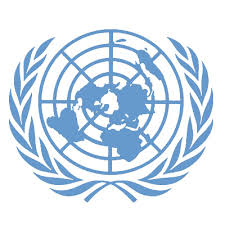On September 8th, 2002, the Bush Administration began its blitz for Invading Iraq. Cheney, Rice, Rumsfeld, and Powell each appeared on television pushing the Iraq WMD story, and Judith Miller has an INC inspired piece in the New York Times. Four days later, George Bush Addressed the United Nations.
And within a month, Congress had passed an Authorization for the Use of Military Force in Iraq [House 297:133:3 and Senate 77:23:0]. If you read through it, as written it is heavily tied to the actions of the United Nations.
 |
| Public Law 107–243 107th Congress Joint Resolution To authorize the use of United States Armed Forces against Iraq. October 16, 2002 |
|
SECTION 1. SHORT TITLE.
This joint resolution may be cited as the ‘‘Authorization for Use of Military Force Against Iraq Resolution of 2002’’.
SEC. 2. SUPPORT FOR UNITED STATES DIPLOMATIC EFFORTS.
The Congress of the United States supports the efforts by the President to— (1) strictly enforce through the United Nations Security Council all relevant Security Council resolutions regarding Iraq and encourages him in those efforts; and
(2) obtain prompt and decisive action by the Security Council to ensure that Iraq abandons its strategy of delay, evasion and noncompliance and promptly and strictly complies with all relevant Security Council resolutions regarding Iraq.
SEC. 3. AUTHORIZATION FOR USE OF UNITED STATES ARMED FORCES.
(a) AUTHORIZATION.—The President is authorized to use the Armed Forces of the United States as he determines to be necessaryand appropriate in order to—
(1) defend the national security of the United States against the continuing threat posed by Iraq; and
(2) enforce all relevant United Nations Security Council resolutions regarding Iraq.
(b) PRESIDENTIAL DETERMINATION.—In connection with the exercise of the authority granted in subsection (a) to use force the President shall, prior to such exercise or as soon thereafter as may be feasible, but no later than 48 hours after exercising such authority, make available to the Speaker of the House of Representatives and the President pro tempore of the Senate hisdetermination that—
(1) reliance by the United States on further diplomatic or other peaceful means alone either
(A) will not adequately protect the national security of the United States against the continuing threat posed by Iraq or
(B) is not likely to lead to enforcement of all relevant United Nations Security Council resolutions regarding Iraq; and
(2) acting pursuant to this joint resolution is consistent with the United States and other countries continuing to take the necessary actions against international terrorist and terrorist organizations, including those nations, organizations, or persons who planned, authorized, committed or aided the terrorist attacks that occurred on September 11, 2001.
(c) WAR POWERS RESOLUTION REQUIREMENTS.—
(1) SPECIFIC STATUTORY AUTHORIZATION.—Consistent with section 8(a)(1) of the War Powers Resolution, the Congress declares that this section is intended to constitute specific statutory authorization within the meaning of section 5(b) of the War Powers Resolution.
(2) APPLICABILITY OF OTHER REQUIREMENTS.—Nothing in this joint resolution supersedes any requirement of the War Powers Resolution…
|
But by the next week, John Yoo in the Office of Legal Counsel had written a Memo that essentially says that Congressional Approval is only supplemental to the President’s "independent constitutional authority" to order military action.
|
OLC: AUTHORITY OF THE PRESIDENT UNDER DOMESTIC AND INTERNATIONAL LAW TO USE MILITARY FORCE AGAINST IRAQ
|
| The President possesses constitutional authority to use military force against Iraq to protect United States national interests. This independent constitutional authority is supplemented by congressional authorization in the form of the Authorization for Use of Military Force Against Iraq Resolution. Using force against Iraq would be consistent with international law because it would be authorized by the United Nations Security Council or would be justified as anticipatory self-defense.
October 23, 2002 |
In November, the U.N. passed a strong resolution insisting on resumption of inspection of Iraq’s military arsenel.
|
UN: UNSCR 1441
|
| UN Resolution insisting on full inspections in Iraq
November 8, 2002 |
Again, John Yoo writes an OLC Memo that states that the President’s power to wage war is not effected by the terms of the UNSCR 1441.
|
OLC: EFFECT OF A RECENT UNITED NATIONS SECURITY COUNCIL RESOLUTION ON THE AUTHORITY OF THE PRESIDENT UNDER INTERNATIONAL LAW TO USE MILITARY FORCE AGAINST IRAQ
|
| United Nations Security Council Resolution 1441 does not alter the legal authority, under international law, granted by existing U.N. Security Council resolutions to use force against Iraq.
November 8, 2002 |
On December 7th, 2002, Saddam Hussein submitted his inventory of weaponry to the U.N. as required by UNSR 1441…
|
WHETHER FALSE STATEMENTS OR OMISSIONS IN IRAQ’S WEAPONS OF MASS DESTRUCTION DECLARATION WOULD CONSTITUTE A “FURTHER MATERIAL BREACH” UNDER U.N. SECURITY COUNCIL RESOLUTION 1441 |
|
False statements or omissions in Iraq’s weapons of mass destruction declaration would by themselves constitute a “further material breach” of United Nations Security Counsel Resolution 1441.
December 7, 2002 |
Big surprise. On the same day as Saddam Hussein submits his inventory and inspection is reinstituted in Iraq, John Yoo writes an OLC Memo that any false declarations would essentially justify a war.


Sorry, the comment form is closed at this time.